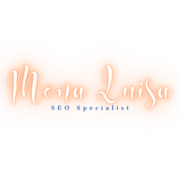E-commerce SEO is crucial for driving organic traffic to your online store. More organic traffic means more potential customers, which in turn can lead to more sales. However, with so many e-commerce websites competing for the same audience, it can be challenging to stand out from the crowd. That’s why it’s essential to have a solid SEO strategy that targets the right keywords, optimizes your product pages, and creates a seamless user experience. In this blog post, we’ll discuss the best e-commerce SEO strategies that you can implement to drive organic traffic and boost sales.
Keyword Research
The first step to improving your e-commerce SEO strategy is to conduct keyword research. You need to identify which keywords your target audience is searching for, and then optimize your website and product pages to reflect those keywords. Start by using a keyword research tool like Google Keyword Planner or SEMrush to discover relevant keywords. Once you have a list of keywords, you can integrate them into your product titles, descriptions, and meta tags. Be sure to focus on long-tail keywords that are more specific, as they are likely to have low competition and higher conversion rates.
Optimize Product Pages
Your product pages are one of the most crucial elements of your e-commerce website. They are the pages that capture visitor interest and encourage them to make a purchase. To optimize your product pages, use descriptive product titles, clear descriptions, and high-quality images. Additionally, create unique meta tags for each page, including the product name, brand, and features. Don’t forget to include customer reviews, as they can add credibility to your product and help boost your SEO.
Invest in Content Marketing
Content marketing is an excellent way to establish yourself as an authority in your industry and attract organic traffic to your website. Create blog posts, social media posts, and video content that is relevant to your target audience. For example, if you run a beauty supply store, you may want to create content on skincare tips, makeup trends, and haircare routines. Remember to integrate keywords into your content, and promote it through your social media channels to drive traffic back to your website.
Build High-Quality Backlinks
Backlinks are links from other websites that point to your website. Having high-quality backlinks can improve your website’s authority and increase your search engine rankings. Reach out to other websites in your industry and ask if they would be interested in linking to your website. When building backlinks, focus on quality over quantity. A few high-quality, relevant backlinks are worth more than hundreds of low-quality backlinks.
Optimize Your Category Pages
Besides your product pages, your category pages also play a vital role in your SEO strategy. They help search engines understand the structure of your website, and make it easier for visitors to navigate through your store. To optimize your category pages, create unique meta descriptions for each page, and integrate relevant keywords into your headers and subheaders. Additionally, ensure that each category page links to relevant product pages or subcategories.
Implementing e-commerce SEO strategies can drastically improve your online store’s organic traffic and sales. By conducting keyword research, optimizing your product pages, investing in content marketing, building high-quality backlinks, and optimizing your category pages, you can create a robust SEO strategy that aligns with your business goals. Remember, SEO is not a one-time event. It is an ongoing process that requires constant monitoring, testing, and refining. By staying up-to-date with the latest SEO trends, you can create a sustainable strategy that drives results for your e-commerce business.

